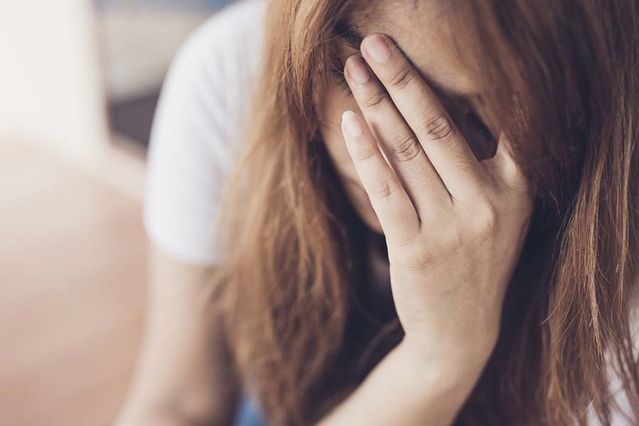Depression
How Can I Tell If I Have Treatment-Resistant Depression?
Several issues can interfere with treatment and recovery.
Posted February 28, 2018

It is estimated that 350 million people around the world suffer from depression. Even though there are many antidepressant treatments, some people do not respond to medication and nothing they have tried has improved their symptoms or put their depression into remission. These are the patients most likely to be diagnosed with treatment-resistant depression (TRD).
What Is Treatment-Resistant Depression?
Assessment of TRD can be a challenge because there are varying degrees of treatment resistance as well as different causes. According to the Food and Drug Administration, an individual has TRD if they’ve had two or more adequate trials of antidepressants over a period of two years, but treatment has failed to allay the symptoms or put their depression into remission. Other sources consider at least one failed trial a deciding factor in the diagnosis.
Some of the defining characteristics of TRD include:
- Symptoms of severe depression, such as suicidal thinking, hopelessness, extreme mood swings and isolation
- Lack of response to multiple medication trials or various prescribed medicines
- Worsening symptoms of depression with each failed treatment attempt
- Inability to tolerate antidepressants at therapeutic doses, often due to serious side effects
The Bigger Issues to Consider
To understand TRD, it’s important to look at some facts about depression and treatment in general:
- Antidepressants are not a panacea. Medications for depression have been oversold to the public. Research shows that just 1 out of 3 people who get an antidepressant is going to be in remission in eight weeks.
- Adjunct treatment is needed. Therapy, mindfulness, meditation, exercise, diet and lifestyle changes have been shown to help people with depression. For example, cognitive behavioral therapy (CBT) does not reduce relapse rates as much as medications do, but CBT plus medicine results in lower relapse rates than when used alone.
- Not everyone attains true clinical remission. Consider this scenario: Patients participate in an initial clinical trial and receive their first antidepressant ever. If 75 percent improve, the medication seems very effective, until you look deeper at the different levels of improvement. It could be that 30 percent of patients are remitted and 45 percent are better, but not in remission. Then out of that group, 25 percent aren't better all. The spectrum of responsiveness is such that on any given medicine there's a group of people who will not benefit at all and then there's another large group of people who benefit but are not in complete clinical remission.
- Primary care for depression is not enough. Since medicine is often prescribed after a brief follow-up visit, without referral to a specialist, patients do not receive education about depression and treatment. They may have no idea how long they must stay on their medication to find and maintain relief. They also may not have a realistic expectation of how much benefit they're going to receive. Sometimes the patient is not given an adequate dose or switched to other medicines when one doesn’t work, or they have a partial response. The person’s depression may seem treatment-resistant when that’s not truly the case. Without understanding that only 50 percent of patients achieve full clinical remission, they may get frustrated and symptoms of depression could worsen.
5 Things That Can Interfere with Treatment
There are several situations that can impact depression treatment and may lead to a diagnosis of TRD. For example:
- Side effects make medication intolerable. Some people struggle so much with side effects like weight gain and sexual dysfunction they stop their medication before it has a chance to help them or they slide back into depression if they stop in the middle of treatment. Even when people experience a robust benefit, if they have a side effect that they can't live with, they're going to stop taking their medicine. It can be difficult to assess whether a patient’s depression is truly treatment-resistant or treatment-intolerant.
- Misdiagnosis of bipolar disorder. There are many people with bipolar disorder that don't have full-blown manias, but have milder “up” periods. If they’ve never been diagnosed and treated, and they go to a doctor and ask for an antidepressant, it may be prescribed without taking an adequate history. People with bipolar disorder don’t respond to typical antidepressants as well as people with unipolar depression. Without the diagnosis of bipolar, and with no awareness that the patient has had manic episodes, failure to respond might be seen as TRD.
- Comorbid conditions. Substance abuse is a major factor in poor outcomes. This is because drugs and alcohol can interfere with the therapeutic benefit of medications. Similarly, the presence of any other psychiatric diagnoses tends to lower the rate of response. For example, people who have depressive symptoms and post-traumatic stress disorder (PTSD) have lower rates of response than people with depression that's not complicated, for instance, by PTSD or another condition.
- Stopping the medication too soon. If someone has an episode of depression and they improve on a particular medication, most doctors would recommend that they stay on the medicine for at least six months, maybe a year. But often when people start feeling better, they think they are healed and stop taking the medicine before their doctor wants them to. In part, this is because the medicine is often prescribed by primary care physicians who are not able to closely monitor their patients. It is also partially due to lack of education about depression, medications and their side effects. There are many reasons a person may stop taking their medicine, from feeling great to stigma, but the number-one reason is patients need more support in coping with side effects.
- Frequent relapse. There is a group of people with depression who would meet criteria for frequent relapse or recurrent major depression. They have had three or more episodes of depression and typically relapse within three years if they don't stay on their medication. In this subgroup, there is a lower, 30 percent relapse rate if they stay on their medicine. People with a history of recurrent depression probably need to stay on their medicine longer, and some in this group need to stay on their medicines indefinitely.
Given all the variables that can impact diagnosis and treatment, it’s important to seek help from the right mental health professionals. A psychiatrist or psychopharmacologist can take your depression history, assess your symptoms, and figure out whether you are on the correct medication and dosage. They can also test you, or refer you for further psychological testing, to help diagnose or rule out co-occurring conditions.
For some people with TRD, recovery may lie beyond a pharmaceutical solution. There are several FDA-approved methods available today. As a medical consumer, learn all your options so that you can ask about the treatment that can best meet your needs.


